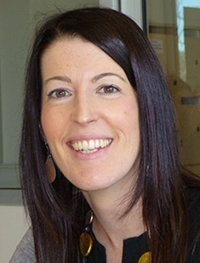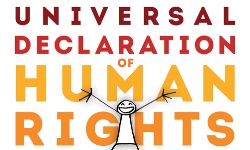 Health and education professionals have a particular role in supporting individuals with communication disorders, according to new research.
Health and education professionals have a particular role in supporting individuals with communication disorders, according to new research.
Key points:
- The research by academics from Charles Sturt University (CSU) and The University of Sydney (USYD) shows the importance of understanding the impact on people’s lives when the right to communicate is constrained, and
- the importance of support to ensure all achieve this human right.
Dr Jane McCormack (pictured) and Dr Kathryn Crowe in the CSU School of Teacher Education, and Dr Elise Baker (The University of Sydney) examined the submissions made by people with a communication disorder (including speech, language and stuttering) to an Australian Government Senate Inquiry into the prevalence and impact of communication disorder and the availability of support.
The research was recently published in the special issue of the International Journal of Speech-Language Pathology titled, ‘Communication is a human right: Celebrating the 70th Anniversary of the Universal Declaration of Human Rights’ (2018, Volume 20, issue 1).
Some of the submissions were written by children, who identified the impact at school. These included:
“I can remember spending every lunch time sitting by myself because no one will even try to talk to me … ”.
‘‘I used to substitute the words I couldn’t get out … I often pretended to go to the bathroom before it was my turn.”
Others were written by adults who explained the impact on relationships and employment, such as, ‘‘It is hard for me to communicate effectively during job interviews … ”.
Four themes emerged relating to: personal identity, life with communication disorder, the importance of help, and how life would be different without a communication disorder.
Dr McCormack said, “The individuals with a communication disorder who made submissions to the Australian Government Senate Inquiry revealed how their disorder can impact the right to communicate and other human rights.
“Their accounts, and their insights into service provision and access, have the potential to inform our policies and improve our practices, but only if we become an audience who listens, and advocates for this influence.
 “Seventy years after the creation of the Universal Declaration of Human Rights, it remains the responsibility of all of us to seek out, listen to, and act on the voices of those who are typically the least likely to be heard.
“Seventy years after the creation of the Universal Declaration of Human Rights, it remains the responsibility of all of us to seek out, listen to, and act on the voices of those who are typically the least likely to be heard.
“Health and education professionals have a particular role in supporting individuals with communication disorder, whose right to communicate may be challenged by the lack of an effective means of communication.
“To undertake our role effectively, it is imperative that we understand how communication disorder constrains the right to communicate, and by extension, the enactment of other rights. Additionally, we need to understand how these constraints are, or can be, overcome.”





Social
Explore the world of social